The 64th Thessaloniki International Film Festival has presented a special screening of the first two episodes of The Actor, by Iranian director Nima Javidi. The series features Ali (Navid Mohammadzadeh, actor winner of awards at Venice, Tokyo, and Tallinn festivals) and his friend Morteza (Ahmad Mehranfar), theatre actors with as much talent as bad luck, who resort to their inventiveness to make a living with acting skills that do not allow them to work in a more orthodox way. As in a hidden camera show, they are hired by wealthy people to perform at their parties or to stage deceptive sketches, where they impersonate other people, to surprise the guests. Their versatility and verisimilitude attract a private investigator who hires them into his service. Ali and Morteza, who deceive and surprise even the show’s audience, will embark on an adventure that we will be able to enjoy over two seasons on a European platform to be announced soon.
The two episodes were too short for the audience, who filled the Tonia Marketari cinema to capacity, actively participated in the Q&A, and were as enthusiastic about the adventures of the protagonists and the clever plot twists as they were about the well-crafted tragicomedy with social undertones. The following day, we interviewed Nima Javidi, whose previous films we have appreciated very positively and with whom it is always a pleasure to chat. The Director and screenwriter presented his first feature film Melbourne (2014) at the opening of the Venice Film Festival‘s Critics’ Week, has participated in more than 90 festivals worldwide and received 14 international awards, including Best Film at the Cairo Film Festival, Best Screenplay at the Stockholm Film Festival, Best Screenplay at the Asia Pacific Awards, Best Director and Best Screenplay at the Gijón Film Festival.
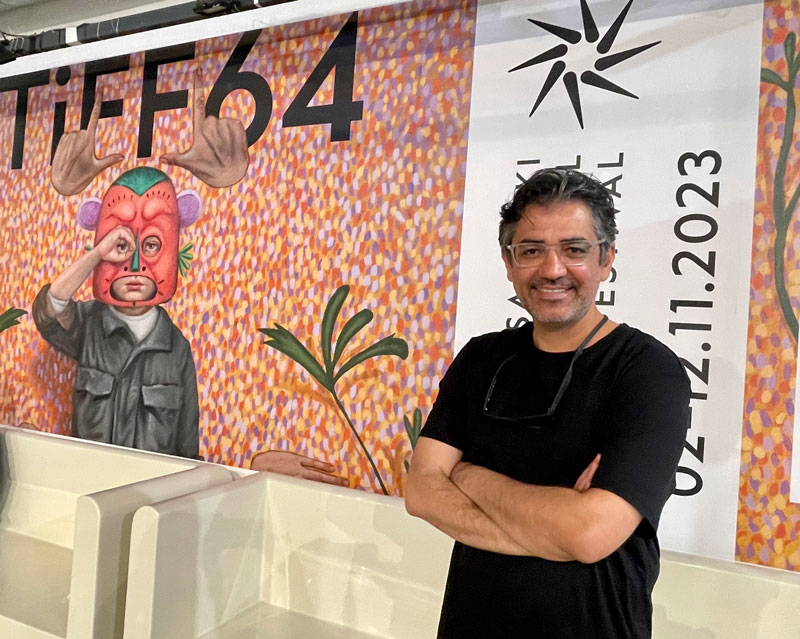
Nima Javidi. Photo © El Hype.
EVA PEYDRÓ: Your previous two feature films had an excellent critical and audience reception. This is your first series and it has already won Grand Prize at the Series Mania Festival and Honourable Mention at the Serien Camp Festival and was nominated for Best Miniseries, Best Screenplay, and Best Actor at the Seoul Drama Awards… What made you decide to shoot a series?
NIMA JAVIDI: During the pandemic, I had a lot of time and I could only write. I had a long time to write and the series are long, so suddenly I decided to try… First of all, I didn’t want to direct it. I just wanted to write the script and when I started writing the series because it was the first time that I decided to make a series, I figured out: It’s beautiful, that’s nice for me. Because, you know, for us, as movie makers, it’s not the perfect thing, to be honest. At least, it was not. After this experience, I think that it’s a good way to say my thoughts and my ideas. So this coronavirus, this pandemic, helped me in this way, I started to write it, and I liked it. I like the process of writing because this dramatic structure in a movie is something else, it’s different from a series. That was for me like joining a new club. I liked it.
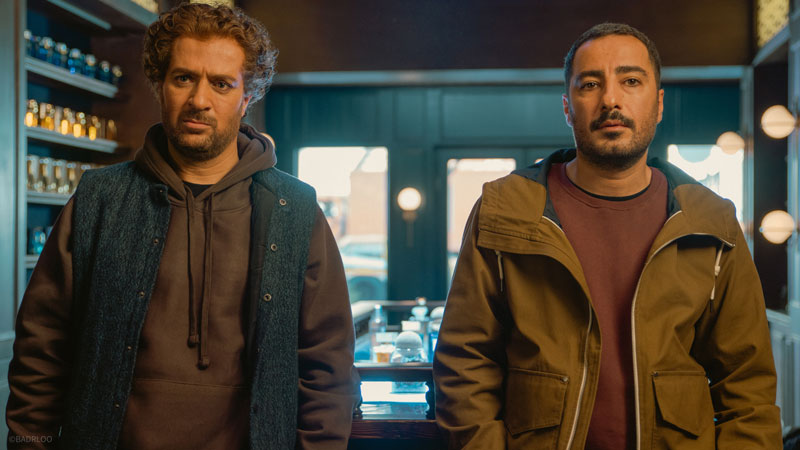
E.P.: And how did the idea for the topic come up?
N.J.: About 9-10 years ago, I had a notebook, and I wrote my ideas there. One of them was about 4 or 5 actors who wanted to ask permission, because in my country… You need permission and after that, you can make something but if you don’t have permission you can change things and ask again. So, in that story, the person in charge doesn’t give them permission, so they decide to revenge and they write something… and one night, they invite him and start to play, but during this play, something dangerous happens, and they kill that guy. It was a story of a movie, and it was just five, seven, six, seven, I don’t know, sentences, not more. The story was about these guys, so I had this idea for a movie. I went back to my notebook, and I checked all the ideas, and… Suddenly I got to this and I thought that it wasn’t bad, it could be developed with some subplots. What if these guys play for catching money? Play roles in real life. I said, okay, bingo. It’s, I like that idea. So I started to write it and this idea came up from this.
E.P.: And in your story, there is also in a way a moral reflection on the essence of acting, on what acting is, on the nature of deception and what it is like depending on whether they are professionals or ordinary people, acting in real life.
N.J.: That’s right. So there’s something more to it. The main concept is that not only the actors but also all people are acting and this came from Shakespeare’s famous sentence: All the world’s a stage, And all the men and women merely players; They have their exits and their entrances, And one man in his time plays many parts. That’s the opening quote in every episode. You can, as an audience, you can figure out that not only these actors but only all people, they’re acting. And this is real life, because I believe in that sentence, you’re acting all the time, your mother for your children, your daughter for your mother, your boss… One plays many roles, in different situations. And this is, it’s a beautiful act.
E.P.: And at the same time, you are showing what are the different purposes of that acting. So they are right… Or not.
N.J.: And in addition, the interesting thing in this idea for me was that these actors save themselves, and save the other people, because it’s also consensual. Not like Superman with power, not like Hercule Poirot with brain, no. That was new for them. Yeah, their power is their acting. And, I believe that this series can be continued for many more episodes. There are two seasons now, eight episodes for season one, and nine for season two.
E.P.: The audience was enthusiastic and laughed often during the screening, and in the Q&A someone was surprised by the European theatrical references in the series. Is there something specifically Iranian in the story?
N.J.: Yeah, definitely it’s specifically Iranian because I am Iranian, I live there and you can smell that, taste that, but, I think human is human and they can click with the series because they can find themselves in it.
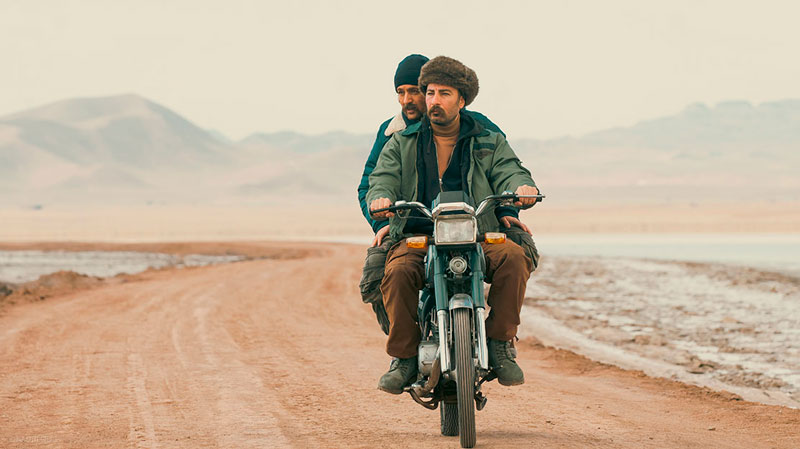
E.P.: The combination of different genres works very smoothly. Comedy, drama, thriller… alternate and merge at times without ever breaking the right tone. It’s funny when it needs to be, and it makes us freeze our smiles just as effectively.
N.J.: Thank you. Actually, I wanted to experience, trying combinations between genres, a mixture of genres. You can laugh, as you told, they get upset, yes.
E.P.: It’s unusual to be able to enjoy an Iranian comedy, it’s not the genre we normally have access to, at least abroad.
N.J.: No, no, it’s not. I’m so happy that the audience can laugh with this series in some parts and worry about the characters. I’m so happy that it works, you know better than me that it’s a risky thing, that mixture. Fortunately, it worked…
E.P.: Did you have any special inspiration for The Actor? Ali quotes Sleuth, the play of Anthony Shaffer, which he himself adapted as a screenplay for the Mankewieckz film.
N.J.: I loved that. I came across this film when I was a teenager, this is on the list of my favorite movies. I like three-unities movies, as I made in Melbourne, and my second movie, The Warden, was like this. I figured out that I was inspired by an Iranian movie, which I loved: The Last Act (1991), by Armenian filmmaker Varouzh Karim-Masihi. I watched it the first time when I was a kid. This story happens 100 years ago, in a big building and it’s about a guy who hires a group of actors at that time. You must watch that movie. They come to that building and for example, one of them becomes a servant, another one, I don’t know, a chef… They play cross. And we see that they’re waiting for a guest and we see that the man’s sister is coming because his brother has died and they want to catch the brother’s money because the money goes to the wife, their plan is to make that woman crazy and catch the money. It’s a mystery, but also a romance because the guy falls in love with her after a while. But the main thing remained in my mind, it’s not related directly to this story, but I’m inspired by that movie and I love it. I spoke about it in my national interviews, many times before. But at that time, I didn’t know that I was inspired by that movie. Nevertheless, when I was writing, I realized that it was inside me.
E.P.: How was the casting process, have you worked with these actors before?
N.J.: In the case of Navid Mohammadzadeh, who plays Ali, I worked with him in The Warden. He was Major Nemat Jahed, the main role in my last movie, and the second one is Ahmad Mehranfars, a famous Iranian comedian. Another genre is buddy, by the way… The most important thing for casting was that I decided to choose the actors from the theater. Ahmad is very famous in theater, most of them, not all, but most of them. I said, okay, I’m making a series about actors, and you can feel that. You know, I didn’t want the acting to be realistic or hyper-realistic. I mean, I spoke about it with the actors, and they, first of all, they were like, Are you sure about it? As you know, Iranian social movies are very hyper-realistic and I respect that cinema but it’s not my taste.
E.P.: And what about your new projects?
N.J.: I am thinking about another series.
E.P. That’s getting serious.
N.J.: It’s getting serious in the world, ha ha… So, I like the process because, fortunately, it was successful in international festivals and I’m thinking about making a mini-series for my next project, but I can’t say what is about, it’s still a secret.
E.P.: Are you open to working in co-production, in another language, with non-Iranian actors?
N.J.: Maybe… I’m also working on two projects at the moment, one of them happens in Iran. But why not? Because I want to have new experiences and I don’t have any problem with this because, you know, human is human. I don’t believe in borders and there is no border for me. So I can work with all the people and definitely I want to have new experiences for example with other actors with other languages, other cultures. Yes. It would be great
E.P.: And We’ll be waiting for that. Thank you very much.

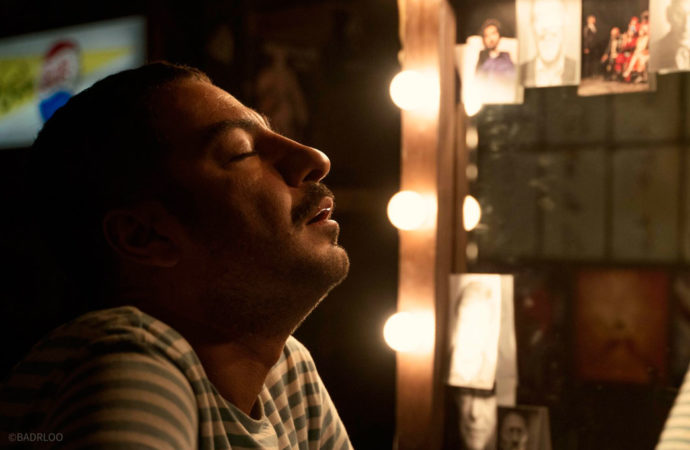


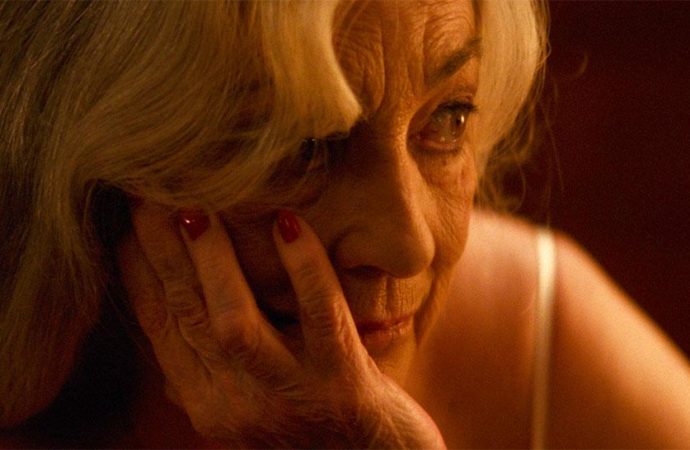
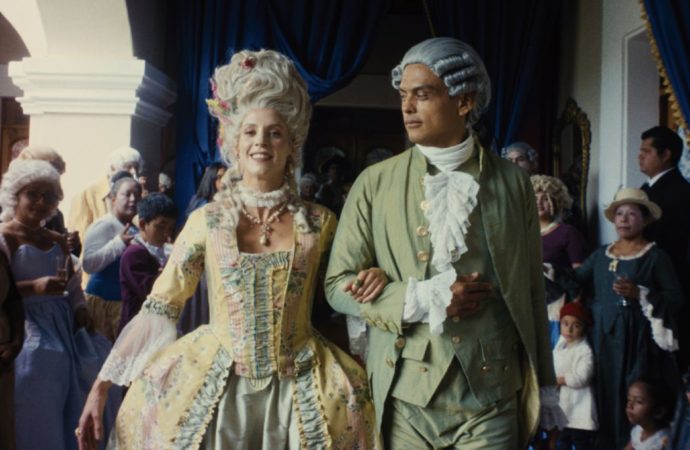


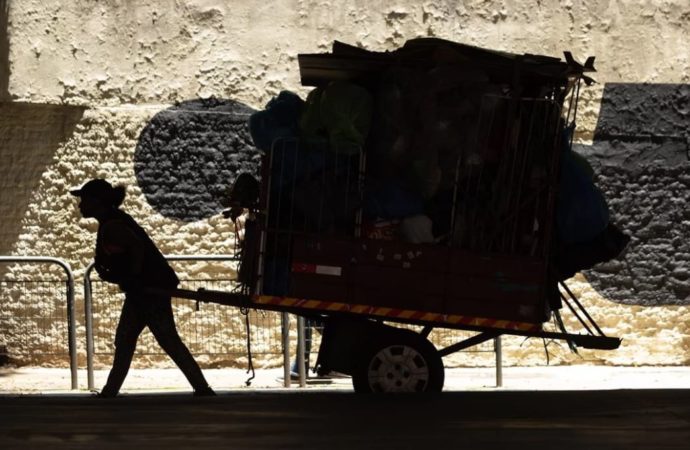
No one has posted any comments yet. Be the first person!